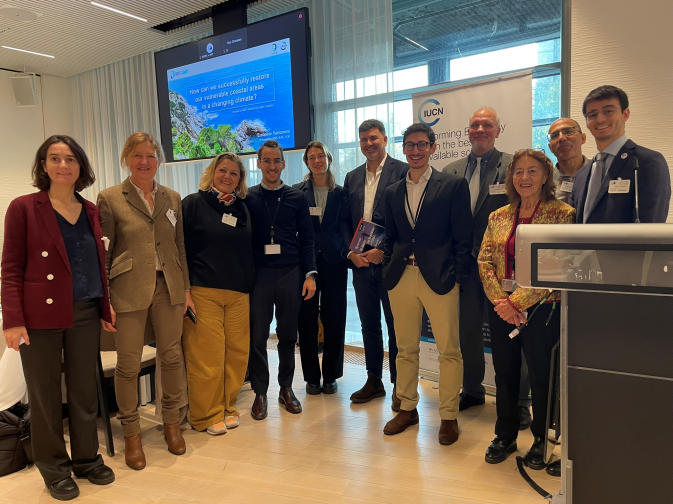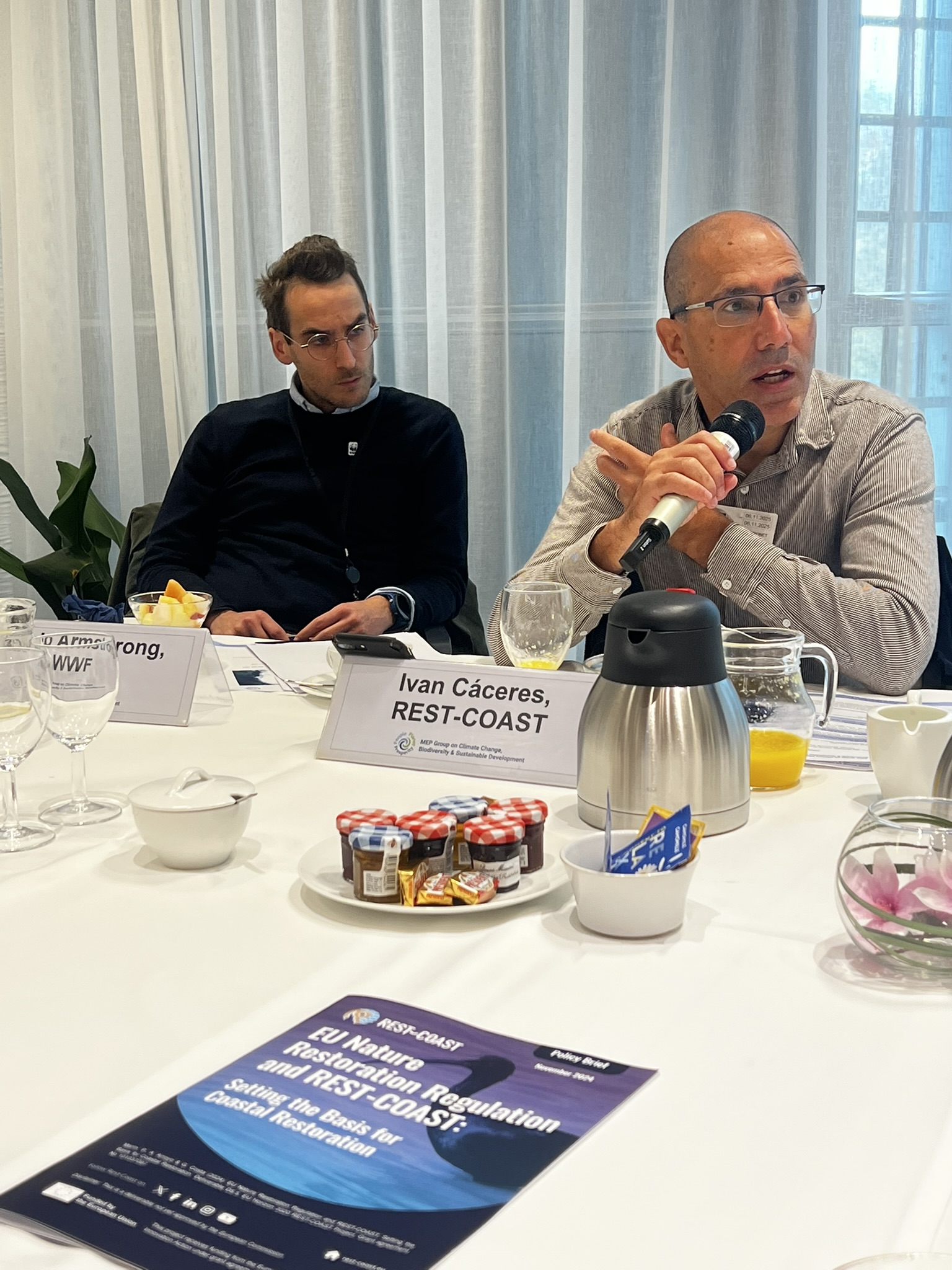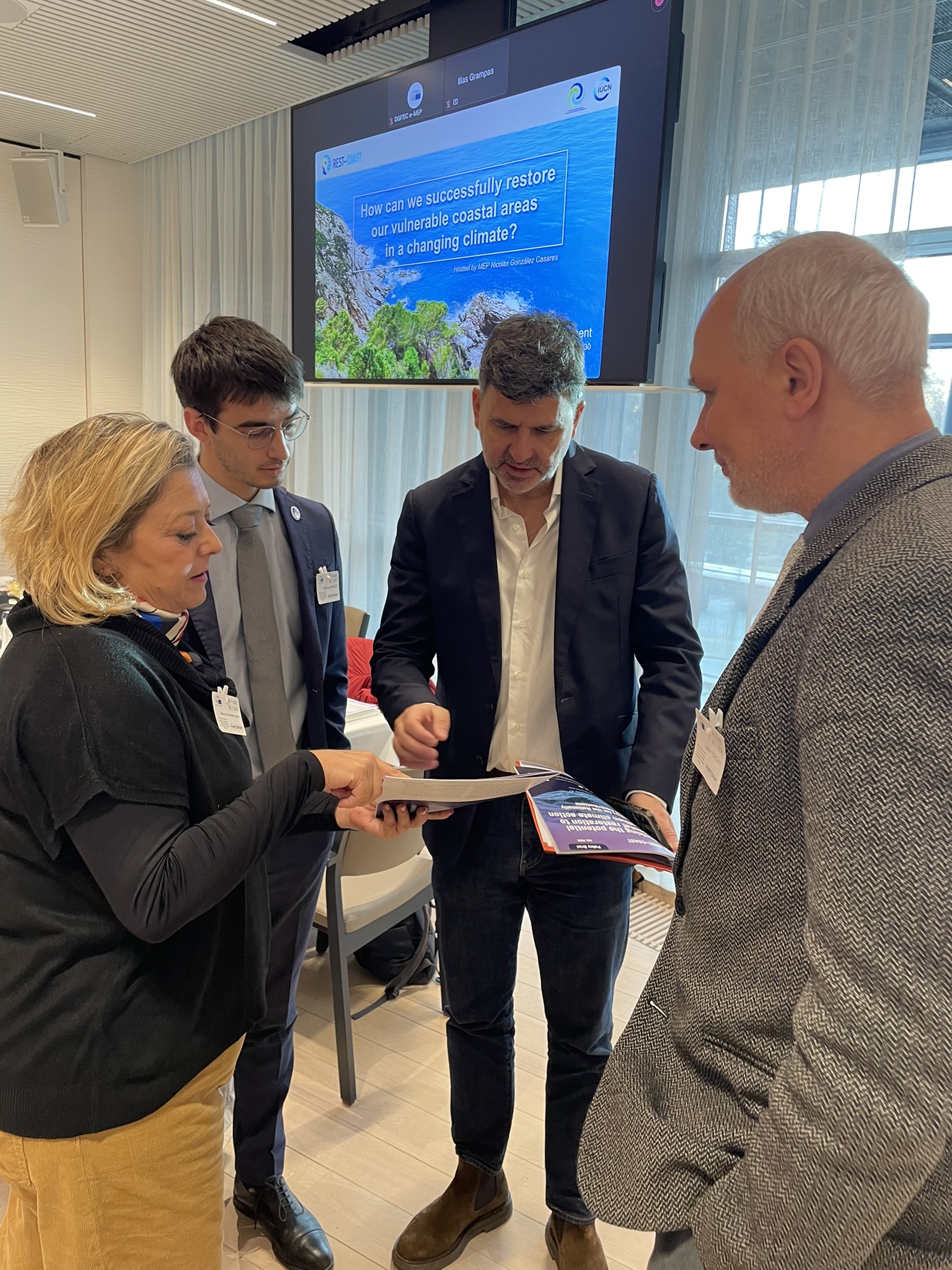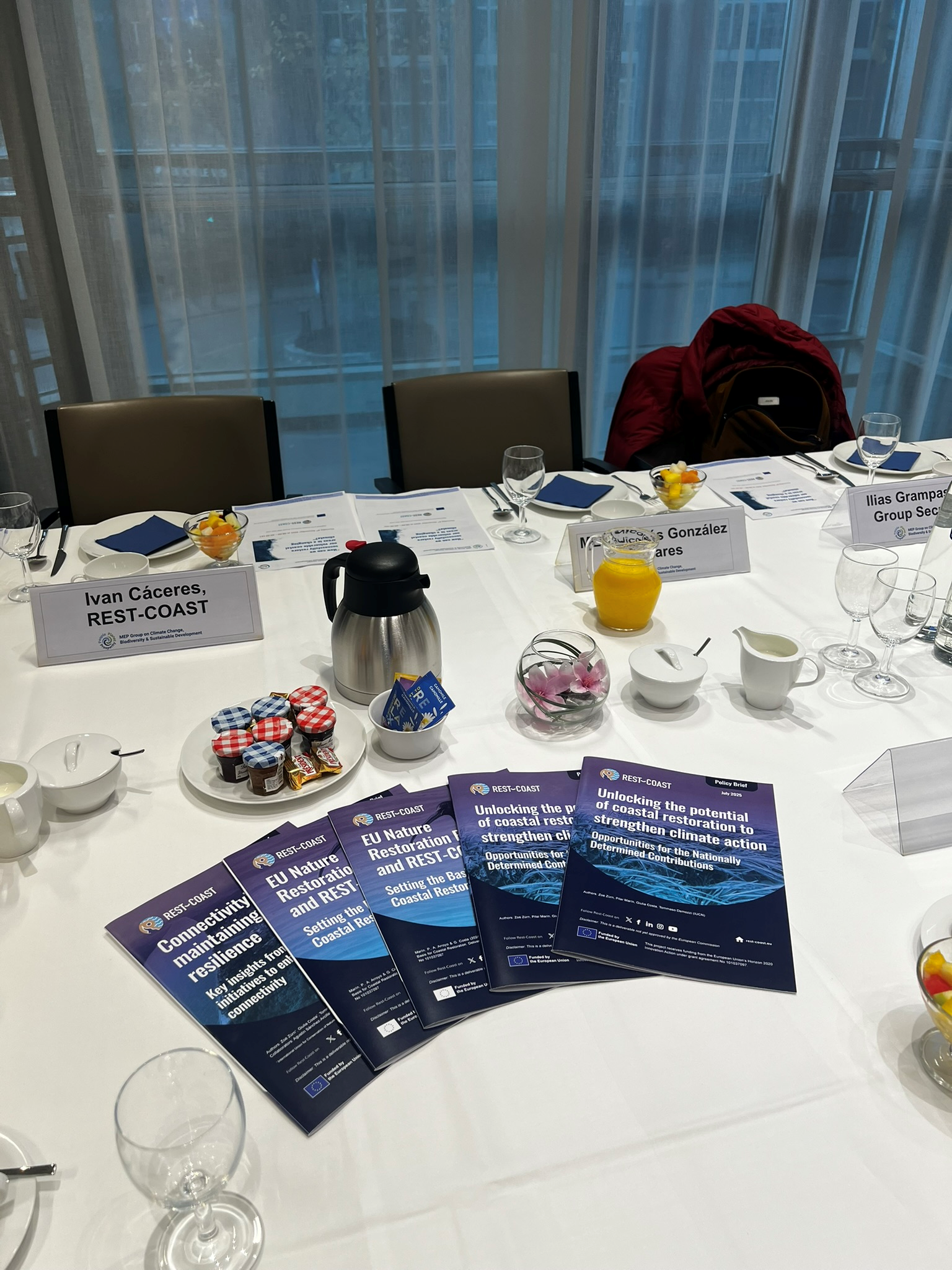
Group photo of some of the participants at the REST-COAST strategic breakfast session. From the left Claire Boudy (IUCN), Marianne Corouble (MedWet), Pilar Marín (IUCN), Jacob Armstrong (WWF), Zoë Zürn (IUCN), Nicolás González Casares (hosting MEP), Ilias Grampas (EBCD), Gábor Figeczky (IUCN), Despina Symons (EBCD), Iván Cáceres (UPM), Tommaso Demozzi (IUCN).
REST-COAST gathers EU stakeholders in Brussels to advance coastal restoration ahead of COP30
As climate pressures intensify along Europe’s coastlines, policymakers, scientists and national representatives gathered in Brussels on 6 November 2025 for a strategic breakfast session hosted by the MEP Mr Nicolás Gonzáles Casares, and under the REST-COAST umbrella and initiative. The event, held at the European Parliament, focused on strengthening policy pathways to restore vulnerable coastal areas and reinforce climate resilience in the lead-up to COP30 in Belém, Brazil.
Coastal ecosystems, crucial for biodiversity, storm protection, carbon storage and community livelihoods, are increasingly strained by sea-level rise, erosion, habitat degradation and the broader triple planetary crisis of climate change, biodiversity loss and pollution. With these pressures expected to escalate, speakers underscored the urgency of cohesive, science-backed governance frameworks to guide large-scale restoration.
A landmark development in this direction came with the EU Nature Restoration Regulation (NRR), adopted in 2024. The NRR introduces legally binding restoration targets across Member States, including for coastal and marine ecosystems. Countries are now required to develop National Restoration Plans detailing how they will meet these targets, an effort that intersects directly with the climate goals of the Paris Agreement and the biodiversity ambitions of the Kunming-Montreal Global Biodiversity Framework.
The Brussels session explored how these instruments can be better aligned to elevate coastal resilience within broader national and EU climate strategies. Particular emphasis was placed on integrating restoration commitments into Nationally Determined Contributions (NDCs), a timely discussion as global climate negotiations begin next week at COP30.
REST-COAST deputy coordinator Iván Cáceres presented the project and all the policy contributions made so far, including the newly developed policy briefs that support restoration upscaling. These outputs draw from the project’s engagement with multilateral environmental agreements, including the UNFCCC and Regional Seas Conventions, and form part of the Green Deal Restoration Cluster’s contribution to shaping informed and coherent EU policy action.

Intervention from Iván Caceres, REST-COAST Deputy Coordinator.
Participants agreed that restoring Europe’s coastal ecosystems is not only an environmental imperative but also a strategic approach to reducing climate-related risks for communities and economies. By improving policy coherence, enhancing implementation and embedding restoration into climate adaptation strategies, the EU has the opportunity to demonstrate global leadership as countries prepare to convene in Belém.
REST-COAST partner Pilar Marín from IUCN concluded the event with a call for continued collaboration between science, policy and governance actors to ensure coastal restoration becomes a central pillar of Europe’s climate and biodiversity agenda.
 |
 |
IUCN team sharing the REST-COAST Policy Briefs with the MEP Mr González Casares.
The recording from the event is available here, while the speakers presentations can be accessed here.